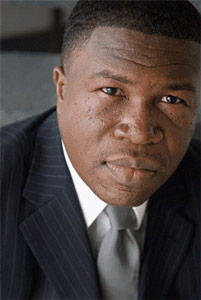 By Jakada Imani, Executive Director of the Ella Baker Center for Human Rights
By Jakada Imani, Executive Director of the Ella Baker Center for Human Rights
It would be silly (and destructive) to attempt to run a business as though it was a kindergarten. With naptime, finger paintings, and slowly taking time to teach people to do the simplest things no matter how much repetition is involved, kindergarten-minded businesses would likely fail in the first year. Even if our model were a world-class kindergarten, it would be a bad idea. The fundamental missions of early childhood education and business are distinct. The main goal of business is to maximize profits. The main goal of kindergarten is to teach children social development; there are very few lessons that you could ever really apply from a well-run playschool to business. But we are more and more confronted with the inverse proposition – that education and human service organizations should run like businesses.
When I first heard this concept, I thought it referred to efficiencies and effectiveness. But I have come to understand this as an attack on the public and social sectors, an attack on public investment in and for public good. The notion that everything can be done efficiently and for a profit is almost everywhere. Recently I wrote a piece for HuffPost about the profit motive in private prisons. We can learn a lot from great, well run companies. I have been deeply inspired by entrepreneurs. But business does not have a lock on excellence. In fact many for-profits are poorly run and most fail. And fail miserably. For every Facebook there are a thousand Friendsters. And that’s fine for widgets, or social network sites. But not for the education of our children, not for economic development of our community and not for the future of our country. For these endeavors we need to focus as much or more on long-term outcomes and the health of the human family as we do on the cost per unit.
As Michael Edwards points out on this epsidode of Please Speak Freely, and in his book, Small Change: Why Business Won’t Save the World, if we use a market approach, the hardest people to serve and the toughest problems often get over looked or strategically ignored. Which is increasingly the reality of people that live in under-served communities. They are mostly left to fend for them selves. One example of this is so-called “food deserts,” where communities have scant access to healthy food. The market that serves these communities provides high fructose corn syrup and white flour by the truckload and little in the way fruits or vegetables. This raises the question, is healthy food a privilege or a human right?
As Eric pointed out in the cast, the per person cost is too high and the “return on investment” too low to make the work “profitable” in these type of cases. Why? This means that some folks are left out and left behind – left. Left behind when we think about education, adequate housing, economic development and an effective public safety approach. These are the types of communities I was raised in and that our work at the Ella Baker Center focuses on. Not because it is cost effective or easy, but because it is the right thing, the moral thing to do.
This is why I believe that we must have clear separation between public/social sector and business thinking. If we go with the market thinking we can argue that some people in our communities are too expensive to serve, and therefore we should leave them behind. That some folks are worth the investment and some people – the poor, folks of color, immigrants, disabled people, and so on – are not. Cost-benefit analysis and profit margin approaches are not the values from which we should judge the worth of helping everyone live with dignity and peace.
What is the cost of a human life? What is the cost of a broken life, dashed dreams? These are questions that markets can’t answer.